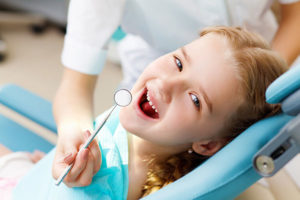Children’s Teeth Eruption Schedule: Baby and Permanent

Children's teeth usually start erupting around six-months after birth. The first set of teeth are known as primary or baby teeth. At around the age of six, your permanent teeth will start to develop, prompting your permanent teeth to fall out. By the age of 21, all of your 32 permanent teeth should have erupted.
Here:
A closer look at when to expect each set of teeth to come out and fall out:
Children's teeth
Primary/baby teeth
Central incisors: These come out between 8-12 months and fall out when you are 6-7 years old.
Lateral incisors: These come out between 9-12 months, and they fall out when you are around 7-9.
Canines: These erupt when you are around 16 - 22 months old and fall out by the time you are 12.
First molars: Your first molars come out around 13 - 19 months after birth and fall out between the ages of 9-11.
Second molars: Your second molar erupts when you're around 25-33 months old. They fall out around the ages of 10-12.
Now that we have a better idea of when your baby children's teeth come out, let's take a look at the eruption schedule for permanent teeth.
Permanent teeth
Central incisors: These begin to emerge when you are around 7-8 years old.
Lateral incisors: These begin to erupt somewhere between the ages of 8 and 9.
Canines: Your permanent canines come out around the ages of 11 -12.
First premolar: These emerge when you are 10-11 years old.
Second premolar: These emerge between the ages of 10-12 years.
First molars: This set of teeth come out when you are 6-7 years.
Second molars: These come out when you are 12-13.
Third molar/wisdom teeth: These come out between the ages of 17-21 years. Wisdom teeth are often extracted since they serve no real purpose and can leave your mouth feeling crowded.
Other things you should know about children's teeth
Generally speaking, most young children will gain four teeth for every six months during their infancy. Teeth development typically occurs faster in girls, and teeth on the lower jaw tend to erupt before their adjacent counterparts.
Also, children's teeth tend to erupt in pairs on each jaw. So for example, your child's canines on the lower jaw will develop at the same time, one on each side. All primary teeth should have erupted by the time your child is three years old.
By the time your child is about 4 years of age, his/her facial bones will begin to grow and that can lead to gaps between primary teeth. This is a natural process as it creates the necessary space for your child's larger permanent teeth. Your child will have a mix of primary and permanent teeth from around six to twelve years old.
Want to know more about how your child's teeth will develop?
Contact Family Choice Dental today at (505) 634-5657 for more information on teeth eruption schedules or request an appointment in our Albuquerque dentist office here: https://familychoicedentistry.com.
Related Posts
Tooth decay is one of the most common oral health issues experienced by children. A pediatric dentist can help your child develop a proper oral hygiene routine that may prevent serious consequences, such as problems with speaking, eating, learning, and playing.According to the Centers for Disease Control and Prevention, 20% of children have a decayed…
Many parents are unsure how frequently they should take their children to the dentist. Read on to find out how often children should see a pediatric dentist. Considering baby teeth are so important to your child’s oral health and development, it is critical to have dental exams at least every six months.To avoid cavities and…
A Pediatric Dentist is a dentist who has specialized training focused on dealing with younger patients. They are typically the best option for young children and teenagers since they are more knowledgeable about the growth patterns of children's teeth and dental issues that are specific to kids. Kids' dentists are also trained on how to…
Dental sealants are a popular option for preventing tooth decay and preserving overall dental health, but many people have questions about their use and necessity in a pediatric dentist office. Do not let lack of information keep you from exploring this important dental option.Q: Where on the tooth are dental sealants applied?A: Typically, dental sealants…
